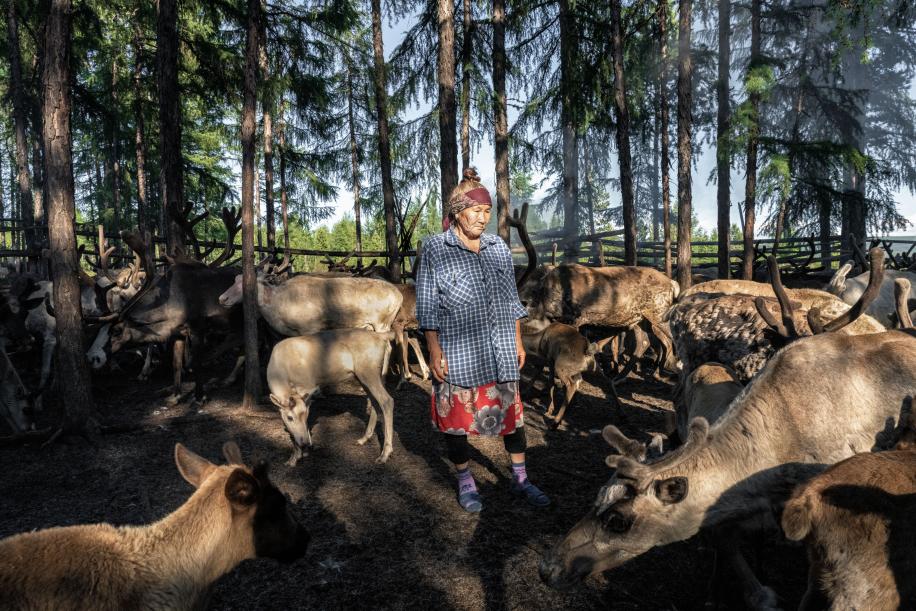

Alla Kourbaltinova, 64, has spent her entire life camping near the village of Iengra, in the Neryungri region, in the taiga of southern Yakutia. Despite the death of her husband 3 years ago, she continues to raise her herd of 215 reindeer, with her son Aleksei and 3 employees. This creates a monthly salary of 35,000 rubles (around 385 euros in 2023). Every year, the reindeer are vaccinated against brucellosis, piroplasmosis, and anthrax, which risks resurfacing with the melting of the permafrost.
The Evenki People: Custodians of the resources of Yakutia
Natalya Saprunova | Russian Federation
Photographer: Natalya Saprunova
Exhibit Title: The Evenki People: Custodians of the resources of Yakutia
Location: Russian Federation
The North of Russia conceals countless riches such as gold, diamonds, but also indigenous cultures. That of the Evenks, in Yakutia, survives as best they can alongside mining companies who exploit their lands, sacrificed on the altar of economic growth. An indigenous people of reindeer herders, they were the ones who guided Russian explorers to the deposits, enabling the industrial development of the Soviet Union. Today, the taiga is massively felled, river beds are ravaged and groundwater is polluted, threatening entire eco-systems. Deforestation favors the appearance of hot winds and subsequently more than local climate change. Indeed, the permafrost contained in Siberian soils is melting more and more, releasing large quantities of greenhouse gases amplifying global warming. In addition, ancient bacteria and viruses dangerous to humans and animals may arise. Today, while hoping to bring Evenk culture to life and interest young people through its transmission, they suffer from the problems of sedentarization and difficulties in carrying out traditional activities, linked to reindeer herding, hunting, gathering and crafts. They regret it all the more as they hoped for a better tomorrow for their children by working for Russian geologists.
Make Comment/View Comments